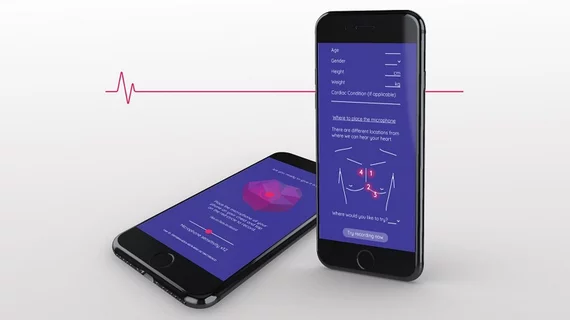Smartphones show potential to double as electronic stethoscopes
A new smartphone application can help patients successfully record their own heart and send those recordings to physicians, according to new research published in European Heart Journal – Digital Health.[1]
The application, called Echoes, represents a collaboration between the British Heart Foundation (BHF), Evelina Children’s Heart Organization (ECHO) and Cellule Design Studio. It operates using the phone’s built-in microphone.
The study’s authors examined data from nearly 7,600 heart recordings captured by more than 1,000 iPhone users. Overall, the application is a safe and effective way for patients to record their own heart. The quality is also consistently strong enough that clinicians can potentially evaluate the recordings when needed. In addition, the authors noted, it could be “deployed on a large scale in areas with insufficient medical resources to help screen and monitor patients with cardiovascular disease.”
The team also emphasized that user age may impact the quality of the recordings captured by this application. However, there were no significant differences in quality when comparing patients by their phone version, sex or body mass index.
“This research proves that mobile technologies are a viable way of recording heart sounds and that in the future, cardiac patients and doctors could use at-home recordings to check for existence or progression of heart conditions,” lead researcher Pablo Lamata, MD, PhD, a cardiac imaging specialist with King’s College of London, said in a prepared statement.
“As we enter the age of digital medicine, technology like Echoes could revolutionize the diagnosis and at-home monitoring of heart conditions,” added James Leiper, BSc, PhD, associate medical director of the BHF and a professor at the University of Glasgow. “Further research is needed to test how the app can be used in tandem with existing heart monitoring techniques. However, if successful, this development could mark an important step towards having heart monitoring tools at your fingertips.”
Looking ahead, the research team highlighted arrhythmias such as atrial fibrillation as cardiovascular conditions this smartphone application could target. Screening for congenital heart disease and valvular heart disease is yet another potential use of the Echoes application, they wrote.
This analysis was funded in part by the BHF and ECHO.

